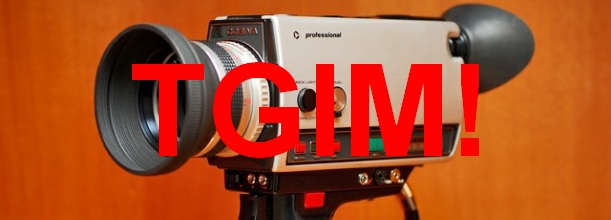TGIM! London International Documentary Festival

The humble documentary is often overlooked at glitzy film festivals (unless Moonrise Kingdom actually happened, in which case there are some very difficult questions to be asked in New England), so it’s always a relief to remember that some brave souls dedicate themselves to the dissemination of brilliant non-fiction film. The superbly named Patrick Hazard, founder of the London International Documentary Festival, heads a team of just such marvellous people, and this week their hard work will pay off once again as the sixth annual LIDF is launched at the LSE.
From Thursday 24th May until Saturday 2nd June, a variety of London locations will play host to the LIDF’s extraordinarily wide-ranging programme. More than 150 films are being screened, many of them with a strong campaigning angle – let’s face it, what with the economic crisis, the incipient threat of global warming and the possibility that Ryan Reynolds will star in a Highlander remake there’s plenty to protest about.

If, like us, your knowledge of Greece begins and ends with Hercules, you’re probably pretty baffled about what’s going on in the cradle of democracy these days. Enter Krisis and Debtocracy, two pioneering documentaries on the subject of the Greek financial crash (we don’t even know if that’s the right thing to call it, that’s how ignorant we are). Krisis, a collaboration between 14 different film-makers and photojournalists documenting the effects of the recession across Greece, will have its world premiere at the Roundhouse on 28th May (that’s next Monday). We’ll certainly be seeing Debtocracy, which sounds like a particularly interesting film – distributed online under a Creative Commons license, its makers are not seeking any sort of commercial gain from their film but see it as a purely educational venture. Critics have called it propaganda – make up your own mind at the Roxy Bar and Screen on the 29th.
For a film that strikes even closer to home, consider the opening gala screening of Shadows of Liberty at the LSE’s Sheikh Zayed Theatre. Director Jean-Philippe Tremblay will be on hand for a Q&A following this harrowing documentary, which blends reconstruction, archive material and interviews to paint a bleak picture of the American media landscape. Do you want to live to see a world in which Best For Film is prevented from libelling Will Smith just because he’s sleeping with Rupert Murdoch (which is another libel, by the way)? Of course you don’t.

Don’t worry, though, it’s not all doom and gloom. We’re planning to lighten things up with screenings including Her Master’s Voice, in which internationally renowned ventriloquist Nina Conti travels with the puppets of her late mentor to the world’s only ventriloquism museum, and Radici, a musicarello (sort of like a music video but for a whole album) centred on Neapolitan singer Enzo Gragnaniello and his oft-misunderstood hometown. Everyone loves puppets and ballads, right? And if neither of those tempt you then you can’t fail to be charmed by Touch the Sky, which follows Cirque du Soleil founder Guy Laliberté (“The first clown in space” – Bono. No, really) as he prepares for a momentous trip to the International Space Station.
Inevitably, some films don’t fit even the (shamefully vague) categories that we’re making up as we go along. The Safest Nuclear Power Station in the World tells the story of the nuclear power plant in Zwentendorf, Austria. Built in the 70s but prevented from opening due to protests, it is now used as everything from a primary school to a community centre. Greenpeace activists practice abseiling down its chimneys before heading to ‘real’ power stations… and a single caretaker presides over the entire edifice. Go on, give that a genre. The world premiere is at the Portobello PopUp Cinema on Saturday, and you’ll probably never get another chance to see it in UK cinemas. It’s just one of an extraordinary panoply of documentaries to get a brief airing in the ten days before the Soho Hotel hosts the festival’s closing gala – the final film, War Matador, was filmed in early 2009 on the Israeli-Palestine border and shows the point of view of the many tourists who came to the fences to watch Gaza burn.

We’ve mentioned scarcely five per cent of the extraordinary programme at this year’s LIDF, so even if nothing above has piqued your interest it’s worth having a look at what else is on – the full listings are here. At a time when so many aspects of our lives are beset by confusion and uncertainty, the London International Documentary Festival serves a vital purpose – both by articulating our own problems with the help of film-makers from around the globe, and by putting them in perspective. Don’t miss out.





Recent Comments